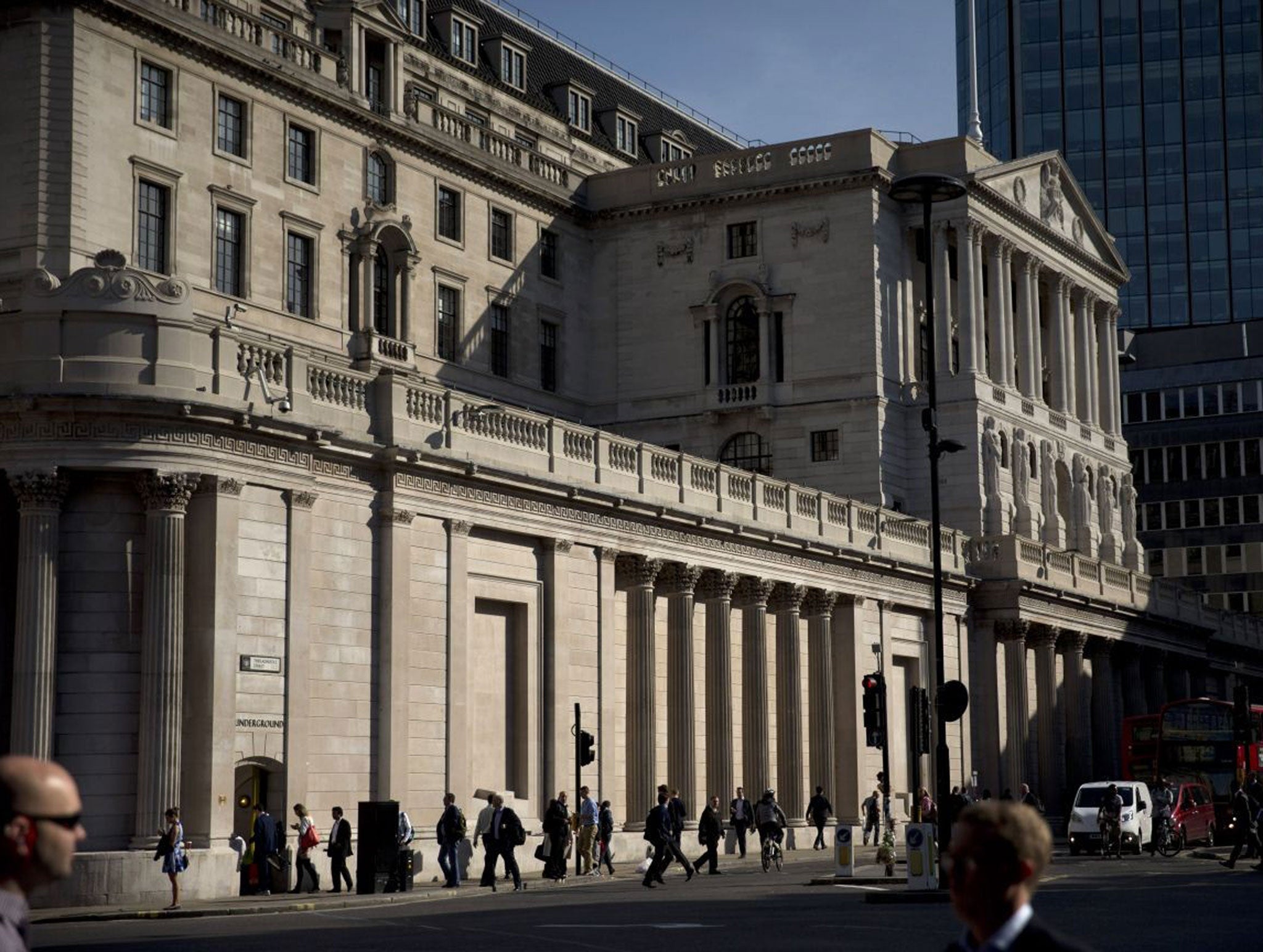'No-flation' adds up to no rate rise until well into next year
'MPC can take its time' as tumbling oil price helps push inflation down to 0 per cent

Tumbling oil prices drove inflation back to zero in August, giving the Bank of England’s Monetary Policy Committee more reason to hold fire on interest rate hikes until well into next year.
The Bank’s official consumer prices index benchmark dropped from July’s 0.1 per cent to 0 per cent in August as the slide in the oil price drove down the cost of petrol and diesel. Also bearing down on inflation in August was a subdued rise in clothes prices compared with last year.
Oil sank almost 14 per cent during the month as worries over China’s stuttering economy fuelled a global sell-off, leaving the cost of crude 48 per cent lower than a year earlier, according to the Office for National Statistics.
The latest evidence of “no-flation” continues the real-terms boost to household budgets, as wages rose 2.8 per cent year on year in the three months to June. “Core inflation” – stripping out volatile energy prices, food and drink – eased back from 1.2 per cent to 1 per cent.
The data also follows a weak run of data for the UK economy following falls in construction and manufacturing output in July and a ballooning goods deficit. The National Institute of Economic and Social Research estimates that growth slowed to 0.5 per cent in the quarter to August, down from 0.7 per cent in the April-June quarter.
It is expected that the US Federal Reserve will tomorrow raise rates for the first time since 2006, but markets currently predict that the MPC is more likely than not to move in May next year.
With a first hike since July 2007 fully priced in by August next year. Vicky Redwood, chief UK economist with the research company Capital Economics, added: “The MPC can take its time with the first interest rate rise.”
Only Ian McCafferty among the MPC’s nine rate-setters is currently voting for a rise. But fellow committee member Martin Weale has said rates may need to rise “relatively soon”, and colleague Kristin Forbes has argued that the Bank may have to move more quickly than expected if the stronger pound has less impact on dragging down inflation than traditionally thought.
The Bank’s Governor Mark Carney has said the position on rates “will come into sharper relief” at the turn of the year, but economists at Barclays said a rise as early as February 2016 looked off the cards: “Against this backdrop, hawkish comments by Kristin Forbes or Martin Weale over the weekend sound hollow. To remain on track for a rate hike in Q1 2016, domestic data, including inflation, will now need to consistently surprise.”
The Bank will, however, keep an eye on the latest signs of wage inflation contained in today’s employment figures.
Chris Hare, an economist at Investec, said: “The normalisation of the labour market should see more pronounced increases in wage [and therefore price] growth. Indeed, the rate of annual private sector wage growth has risen above 3 per cent, following the sub-2 per cent growth seen for most of last year.”
Subscribe to Independent Premium to bookmark this article
Want to bookmark your favourite articles and stories to read or reference later? Start your Independent Premium subscription today.

Join our commenting forum
Join thought-provoking conversations, follow other Independent readers and see their replies